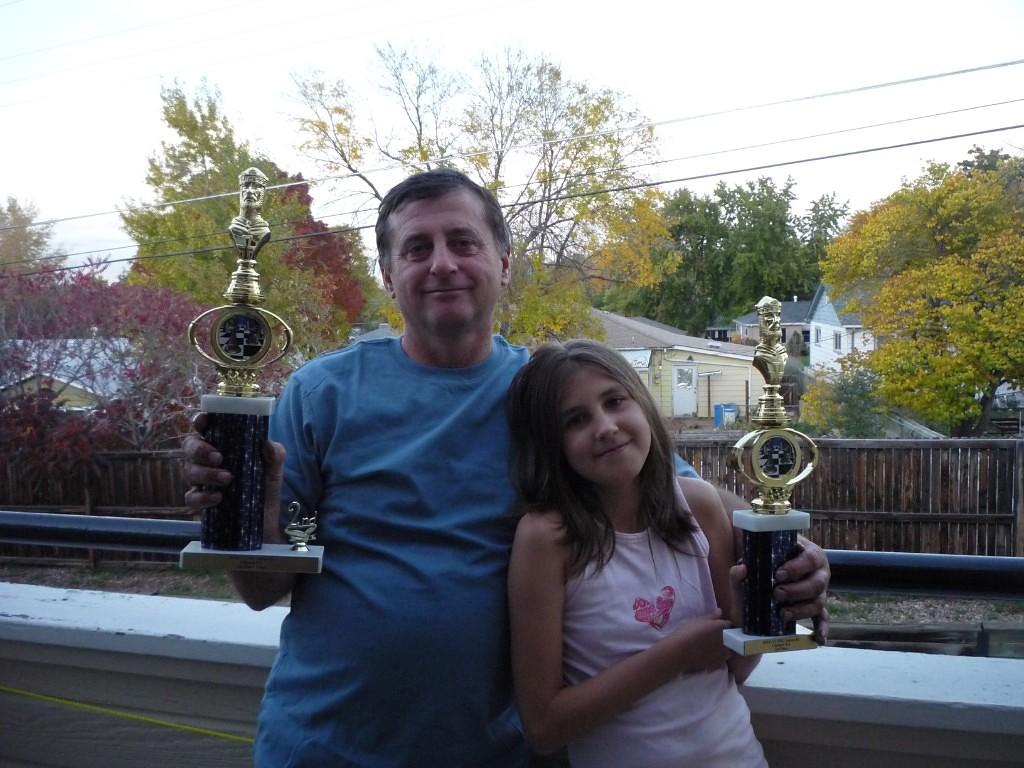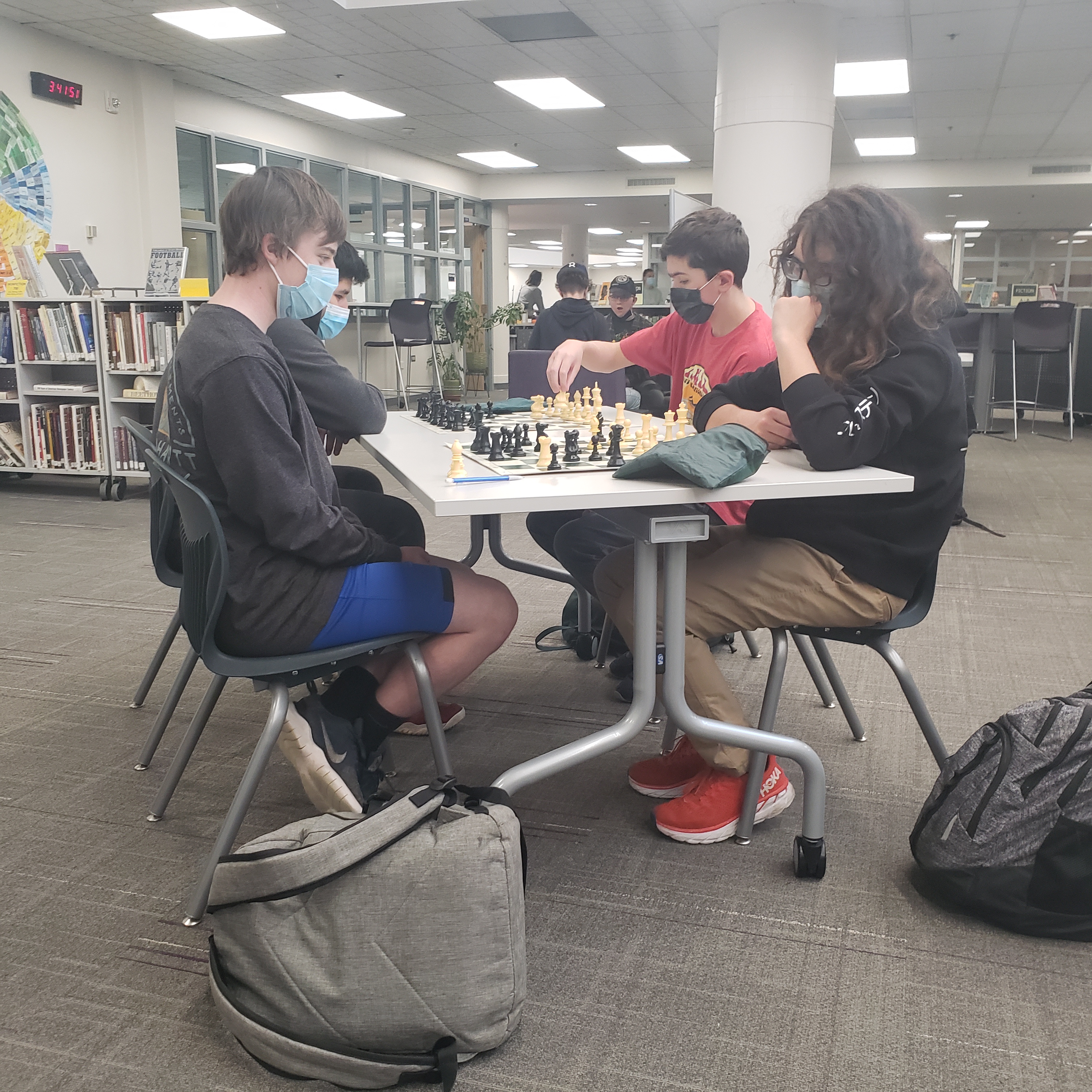On Thursday the 13th of January, students gathered in the library and were randomly paired up to play cutthroat matches of chess. Brows knit together in concentration accompanied gleeful jeers, as the room erupted into engrossment.
“I played chess competitively in Moldova and then moved to the United States and I played in tournaments here too,” said club president Olga Sorbala. “I just though it would be a great club to have.”
Sorbala, a senior here at Littleton, has played chess since she was seven years old. Before coming to Littleton, she attended a middle school that offered a chess club after school.

There, she met Ms. Donahue and Mr. Atwood. Ms. Donahue, who now works as our school librarian, has advocated for attendance of the chess club since last semester. Mr. Atwood, a kind man with a flair for theatrics, administrated the Swiss-style tournament that took place on Thursday.
On the board that greeted each new member read “Are you happy being terminally mediocre?” Mr. Atwood explained that one must consider how they might want their skills to grow, especially in a board game like chess. He went on to say that the only skills necessary to become good at chess are the abilities to read and to be able to read. Thus, chess is (in theory) accessible to nearly all.
“I have had an offer for Littleton to join a chess league with other schools, so maybe someday this club could be as competitive as some other clubs, maybe even this year. But for right now this club is just to have fun and enjoy chess with friends, and hopefully make new friends,” said Sorbala.

The beginning of the chess club coincides with the institution of Coffee and Calculus Club.
“We really want to create a space where people can explore interesting math concepts, and often times concepts that aren’t presented in the classroom,” said freshman Noah Orcutt. Orcutt, who aided in the creation of the club, is already taking Trig Pre-Calc. Orcutt and fellow freshman Elan Sturtz connected with math teacher Ms. Ockner to build an environment fostering a love and appreciation for math and its applications.
“I enjoy the puzzle aspect of math. It gives you a way to solve complex problems, but it’s broken down into smaller, simpler steps,” said Orcutt.
The push for more casual, intellectual clubs can be traced back to the genesis of World Language Club, which was founded last semester by junior Andrew Macedo, and Creative Writing club, founded and conducted by Ms. Ambroggio. These clubs, though centralized around complicated concepts like chess, calculus, creative writing, and language acquisition, seek to demystify these subjects in a comfortable environment.
“Anyone can join, you just have to be willing to participate. Your skill level doesn’t matter, it’s just about your interest. We currently have people taking geometry and people taking calc in the club,” said Orcutt. A similar theme is present in our chess club.
“Anyone can join! You don’t need experience just an open mind and a willingness to learn. A lot of people got into chess after Queens Gambit so there are a lot of beginners this year everywhere,” said Sorbala. This principle was demonstrated by junior Lilyann Dominic who, although acts as the club’s vice president, has no chess experience. Her presidential partner has years of competitive experience and yet, they played against one another, giggling the whole way through.
The clubs notably represent something much larger; the chance to learn without fear of failure. Now, free from the pressures of school or practiced leagues, students can experience the opportunity to sharpen their skills alongside friends and experienced mentors.
Though both clubs meet on the same day, Coffee and Calculus can be enjoyed before school, once a month, beginning at 7:45, and the chess club plays from 3:30-4:45. As detailed above, one does not need any prior experience or knowledge in either discipline to join, so long as they’re excited to learn.
